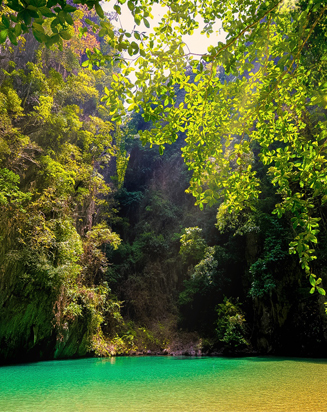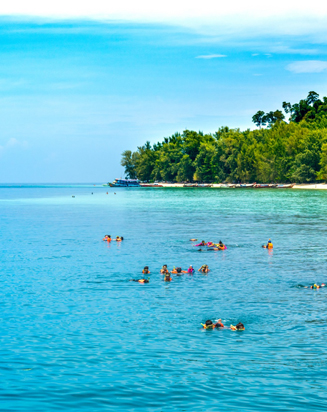
This area, which
was proclaimed a marine national park on 14 October 1982, covers the 2
districts of Kantang and Sikao. The park headquarters is situated at Chang Lang
Beach in Tambon Mai Fat, approximately 47 kilometers from the city.
Hat Chao Mai national park is
comprised of Beaches and 7 islands located on the Andaman Sea in Trang
Province. The whole area covers two districts, namely Kun Tung District and Si
Kao District. The national park is subdivided into two areas. The first area is
a famous tourist attraction covering Pak Meng Beach, Yao Beach, Yao Beach, Yong
Ling Beach, San Beach, Chao Mai Beach, while the second one occupies 7 islands
in Trang Province, namely Koh Muk, Koh Kradan, Koh Chueak, Koh Pling, Koh Waen,
Koh Meng, and Koh Chao Mai. For those interested in and wanting to learn about
sea grass, located in the park is an institute for sea research focusing on
conducting research on sea grass. These flowering plants are integral to the
whole ecosystem of the Andaman Sea and are a source of food for dugongs, marine
mammals that are on the verge of extinction. Interesting Tourist Attractions in
Hat Chao Mai National Park Pak Meng Beach is famous for the Meng Rock Mountain
in the shape of a human being sleeping with a turning face up Hat Chao Mai is a
shallow water beach suitable for water activities. Kao Chao Mai is a mountain
in the shape of shark fin. Chao Mai Cave is where tourists are able to sail
into the mouth of the multi-layered cave to enjoy stalactites Situated in Koh
Muk is an emerald cave, a famous destination in Trang Province. Koh Cheauk is
two small adjacent islands where tourists can enjoy breathtaking coral reefs
Koh Kradan is another destination where tourists can enjoy a variety of reefs.
The famous hot fountain is situated in Kun Tung District. The water temperature
can rise to a maximum of about 70 degrees Celsius Kao Bae Na is a mountain
where tourists can enjoy prehistoric paintings. Long Ying Beach is in the shape
of a crescent, with one side attached to a mountain.

